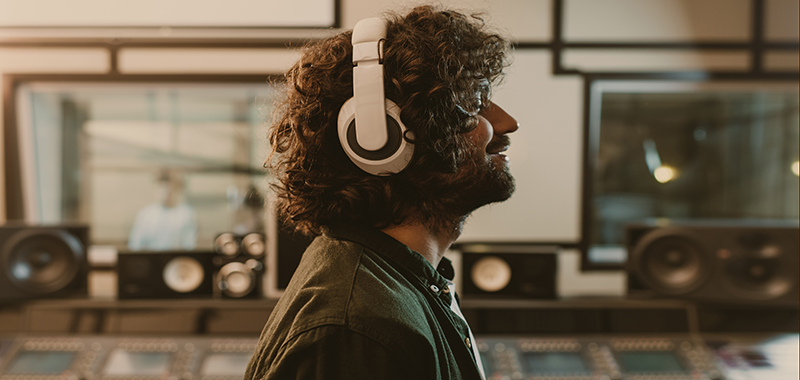
Content creators on platforms must have permission to use other people’s songs
A content creator is a person responsible for generating and creating content in different formats (audio, visual, written, etc.) and on different platforms.
The main platforms used by these content creators, influencers, streamers and/or bloggers are Instagram, TikTok, YouTube, twitch, Facebook, etc.
When developing and creating such content, in many cases, third-party content protected by copyright is used.
In the following, we will see what needs to be considered when publishing certain content on social networks.
What will happen if a content creator uses a song without permission?
Music is one of the most important parts of a video and finding quality non-copyrighted music is often difficult.
Copyright is a set of legal rules and principles that the law establishes for the benefit of authors of works.
In this sense, works can be literary, musical, scientific, artistic, published, or unpublished.
Since these rules are applied in different fields, it is logical that there are different types of copyright. One of the most common on the internet is copyright.
The function of copyright is to protect the literary and artistic property of authors without considering moral aspects.
Most internet users are unaware of the existence of this type of rights and the regulations that protect them.
Accordingly, many content creators are unaware that the music they use to liven up their publications is copyrighted and cannot be used without a license. Even if it is just a snippet or played in the background.
Therefore, if a content creator uses a song without permission or without acquiring the relevant license, he/she will be exposed to a possible lawsuit from the author, who may claim damages, if applicable.
Does this mean that streamers and other creators will no longer be able to use music in their videos and live performances?
Yes, they will still be able to use music for their videos and live performances on the different platforms available for this purpose, as long as they acquire marketing licenses and/or, in any case, subscribe to systems that grant them, such as Epidemic Sound, which is in charge of intermediating directly with the licensing companies, and facilitating access to a wide range of music for content creators or third parties who wish to use this music.
To prevent the use of music without authorization from its authors or without a license to use it, YouTube uses a tracking system (Content ID) that allows the author to block the video or monetize it.
In its case, Twitch continues with its policy of mass deletion of infringing clips or videos with the consequent complaints from streamers.
The directive regulating copyright on the internet, approved in 2019, “establishes for the first time the responsibility of platforms for the protected content they share and urges them to obtain licenses”. In this way, he explains, “they will have to pay royalties to the rightsholders”. What it encourages are licensing agreements and that “authors and rightsholders share fairly in the revenues that are obtained”.
This means that platforms will be obliged to remove infringing content “without the right holders even having to request it”.
Which songs are royalty-free?
Royalty-free music is music created (composed, produced) by authors who are not part of any copyright management society.
Most artists and celebrities register their works to avoid plagiarism and to make a financial profit. In this way, the music collecting societies protect their rights as authors and grant them remuneration.
In addition to these artists who are not registered with SGAE, there are also those whose economic rights have expired. These exploitation rights have a time limit and although they vary from country to country, in Spain they last up to 70 years after the author’s death.

Letslaw es una firma de abogados internacionales especializada en el derecho de los negocios.







